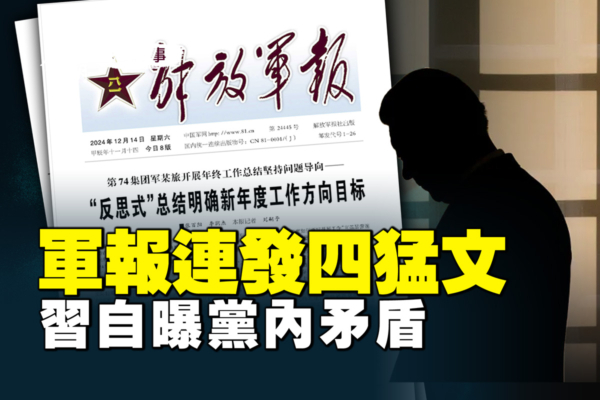Taiwan/Flag of the Republic of China. On January 11, 2023, at a military base in Kaohsiung, Taiwan, the armed forces conducted a two-day routine exercise. (Annabelle Chih/Getty Images)
[People News] The Taipei-Shanghai Twin Cities Forum, scheduled for September 25, was unexpectedly called off just before the Taiwan delegation was set to depart. As the only official exchange between the two sides that has encountered obstacles, what political message does this convey? The Taipei city government indicated that the content of the MOU has not yet been finalised, while sources from Shanghai disclosed that the central leadership had previously issued a directive for silence.
The annual Taipei-Shanghai City Forum was planned to take place from September 25 to 27, with Taipei Mayor Jiang Wan'an leading a delegation for a three-day visit to Shanghai. However, the Taipei city government suddenly announced a postponement until the end of the year, citing the rationale of 'better to do it well than to do it early', and mentioned issues regarding 'review progress'.
Wind Media reported that Taipei Deputy Mayor Lin Yihua noted that this year's main forum was set to sign two new cooperation memorandums (MOU), and the relevant documents were supposed to be submitted to the central ministries for review a month in advance. With many central ministries involved, the progress was not as smooth as anticipated, prompting a cautious decision to delay the event.
Liang Wenjie, Deputy Minister and spokesperson of the Mainland Affairs Council, stated that a preliminary consensus had been reached with the Taipei city government last Friday, and the Immigration Agency was initially prepared to issue certificates on Monday for the Taipei delegation to travel to Shanghai. 'Thus, we were somewhat surprised and also a bit regretful.'
Several experts analysed for BBC Chinese that, with major US-China issues largely settled, the end of September was originally a favourable time for cross-strait dialogue. The sudden announcement of the postponement just three days before the event is 'very unusual', sending a political signal from the Lai Ching-te government and indicating a 'small ice point' in cross-strait relations.
According to a report by the Shanghai Evening News on September 23, sources from Shanghai have revealed that the senior leadership of the Communist Party of China has instructed the Shanghai Taiwan Affairs Office, which is responsible for reception duties, not to comment on this matter. The topics and scheduling will now be directed by the central government in Beijing, while the Shanghai municipal government will only be responsible for signing the memorandum.
The report indicates that the sudden directive from the central government caught the Shanghai side off guard, with even Shanghai Municipal Party Secretary Chen Jining expressing surprise and questioning whether the postponement of the Twin Cities Forum was linked to changes in the Communist Party's senior leadership.
There are rumours circulating within the Shanghai Taiwanese business community that important matters related to united front work and cross-strait affairs are now entirely decided by the Central Committee of the Communist Party. Observers have noted a recent trend of the central government tightening the powers of municipalities, making it increasingly difficult for Taiwanese businesspeople to read the political climate.
Chen Jining, rumoured to be a candidate for the next Premier of the Chinese Communist Party (CCP), expressed interest in meeting Chiang Wan-an two years ago. However, both parties felt that the timing was not right, and the meeting did not take place. It remains to be seen whether Beijing will arrange another time for a 'Chen-Chiang meeting' in the future.
Chen Fangyu, an assistant professor in the Department of Political Science at Soochow University in Taiwan, told BBC Chinese that the Lai Ching-te government has always maintained an open attitude towards cross-strait exchanges. This time, the Mainland Affairs Council has fully assisted Taipei City government personnel in obtaining visas. In contrast, it is Beijing that continuously seizes opportunities to obstruct cross-strait exchanges, using this to hype up claims that Taiwan's ruling authorities are hindering such interactions.
He cited examples of the CCP unilaterally blocking student and tourist visas since 2016, then shifting the blame onto Taiwan. 'Similar incidents have occurred multiple times, and this year's Twin Cities Forum is no exception.'
Dong Liwen, Executive Director of the Asia-Pacific Peace Research Foundation, also told BBC Chinese that based on over a decade of experience, the Twin Cities Forum may have reached a point where it needs to be redefined. He pointed out that four Taiwanese followers of Yiguandao were arrested in China last year and have yet to be released, three of whom are Taipei residents. Taipei City should not avoid discussing such issues in its exchanges with Shanghai.
'If exchanges are treated merely as an end in themselves, without regard for the outcomes, the Twin Cities Forum will increasingly deviate from its original purpose and become a platform for the CCP's united front strategy towards Taiwan, leading to a distortion of the exchanges.'
The Twin City Forum represents the highest-level official exchange between Taiwan and the mainland. Having been held for over a decade, the forum has seen Taipei and Shanghai sign a total of 47 memorandums of understanding for cooperation and exchange. Last year, during a speech by Shanghai's Vice Mayor Hua Yuan, it was announced that Shanghai would resume group tours for mainland Chinese tourists to Taiwan.
△











News magazine bootstrap themes!
I like this themes, fast loading and look profesional
Thank you Carlos!
You're welcome!
Please support me with give positive rating!
Yes Sure!